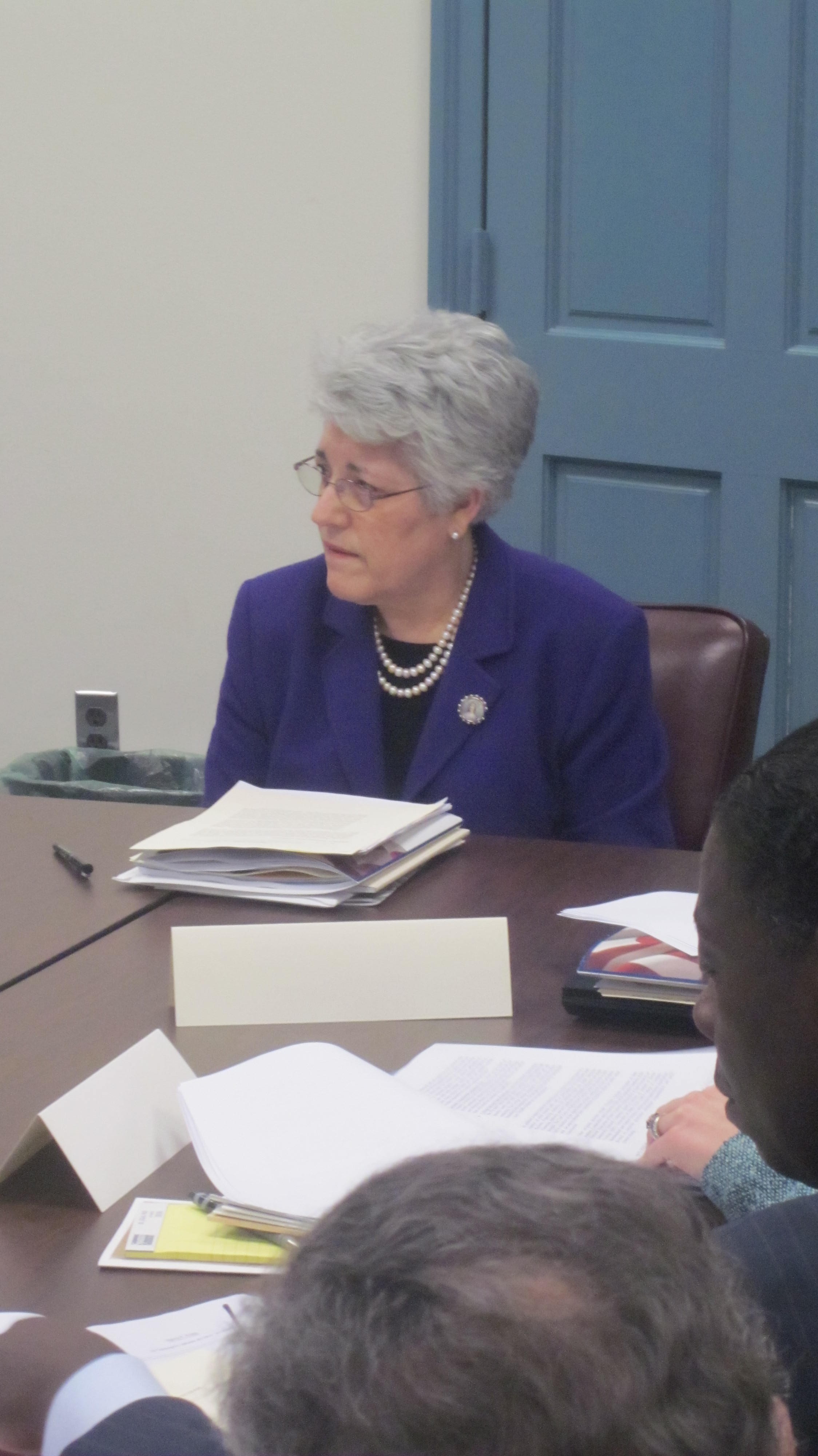State treasurer says Md. bonds face possible Moody’s downgrade
By Ilana Kowarski
[email protected]
As fiscal brinkmanship continues in Congress, state treasurer Nancy Kopp warned a Maryland Senate committee that a federal sequester and the resulting cuts to the state budget could result in a downgrade of Maryland’s triple-A credit rating from Moody’s Analytics, one of America’s three major credit rating agencies.
On Tuesday, Kopp told the Senate Budget and Tax Committee that she recently had discussions with Moody’s representatives. She argued that Maryland’s educated workforce and “conservative budget” make it worthy of the agency’s highest credit rating. But the agency has refused to budge on its position that Maryland’s creditworthiness depends upon the outcome of Washington budget negotiations.
“There is this cloud on the horizon,” Kopp said. “If those ladies and gentleman on Capitol Hill can’t get it together and reach the consensus that Moody’s wants, then they will downgrade the United States, and they might downgrade Maryland, too.”
Moody’s gave notice in 2011
Moody’s gave notice that it might downgrade Maryland’s credit rating in 2011, when it issued a “negative outlook” on the state’s financial health in midst of the U.S. fiscal cliff crisis, when a federal sequester seemed like a real and immediate threat to the nation’s economy, just as it does now.
Sequestration would result in deep cuts in federal aid to states and sharp reductions in federal spending on defense, social services, and other programs. Moody’s argued that these across-the-board spending cuts would have a disproportionate impact on Maryland, because of its proximity to Washington, the high concentration of federal workers in the state, and the large number of federal contracts distributed locally.
Moreover, the firm has a policy that it does not give a state or province a higher credit rating than its sovereign nation. So if they downgraded the United States’ credit rating, they would automatically downgrade Maryland’s, unless Kopp can convince them to make an exception in the case of her state. That is what she has been trying to do.
Maryland could lose millions
The precise cost of a downgrade is unclear, but Kopp says that the state could lose millions of dollars if its credit rating is downgraded, since investors would be unwilling to accept the current low rate for state bonds. When people invest in state bonds, they generally pay more for AAA-rated ones, because they are the most secure, and they do not want to risk losing their principal due to a debtor’s bankruptcy. State and municipal bonds are also tax exempt.
Kopp argued that lowering Maryland’s rating would be completely inappropriate. “We’ve been triple-A rated ever since they [Moody’s] started giving ratings, and we think the state is stronger than it’s ever been,” she said. “A downgrade would send the wrong message to investors.”
Downgrade unlikely before March 6 bond sale
She added that any potential downgrade is unlikely to occur before the state auctions off $500 million worth of bonds on March 6, which will shield Maryland from some of its anticipated costs if the rating downgrade cannot be avoided.
At the present time, Maryland’s debt service obligations — the moneys required to pay the principal and interest on bonds — exceed the state property tax revenues that are supposed to pay those debts. Bond premiums that banks and investment firms pay to purchase high-quality issues are no longer sufficient to make up the difference.
Legislative analyst Patrick Frank said that he hopes that tax revenues will rise as the state recovers from the Great Recession, since that would improve the state’s credit situation. But he agreed with Kopp that a bond rating downgrade would be a formidable obstacle.

MarylandReporter.com is a daily news website produced by journalists committed to making state government as open, transparent, accountable and responsive as possible – in deed, not just in promise. We believe the people who pay for this government are entitled to have their money spent in an efficient and effective way, and that they are entitled to keep as much of their hard-earned dollars as they possibly can.

